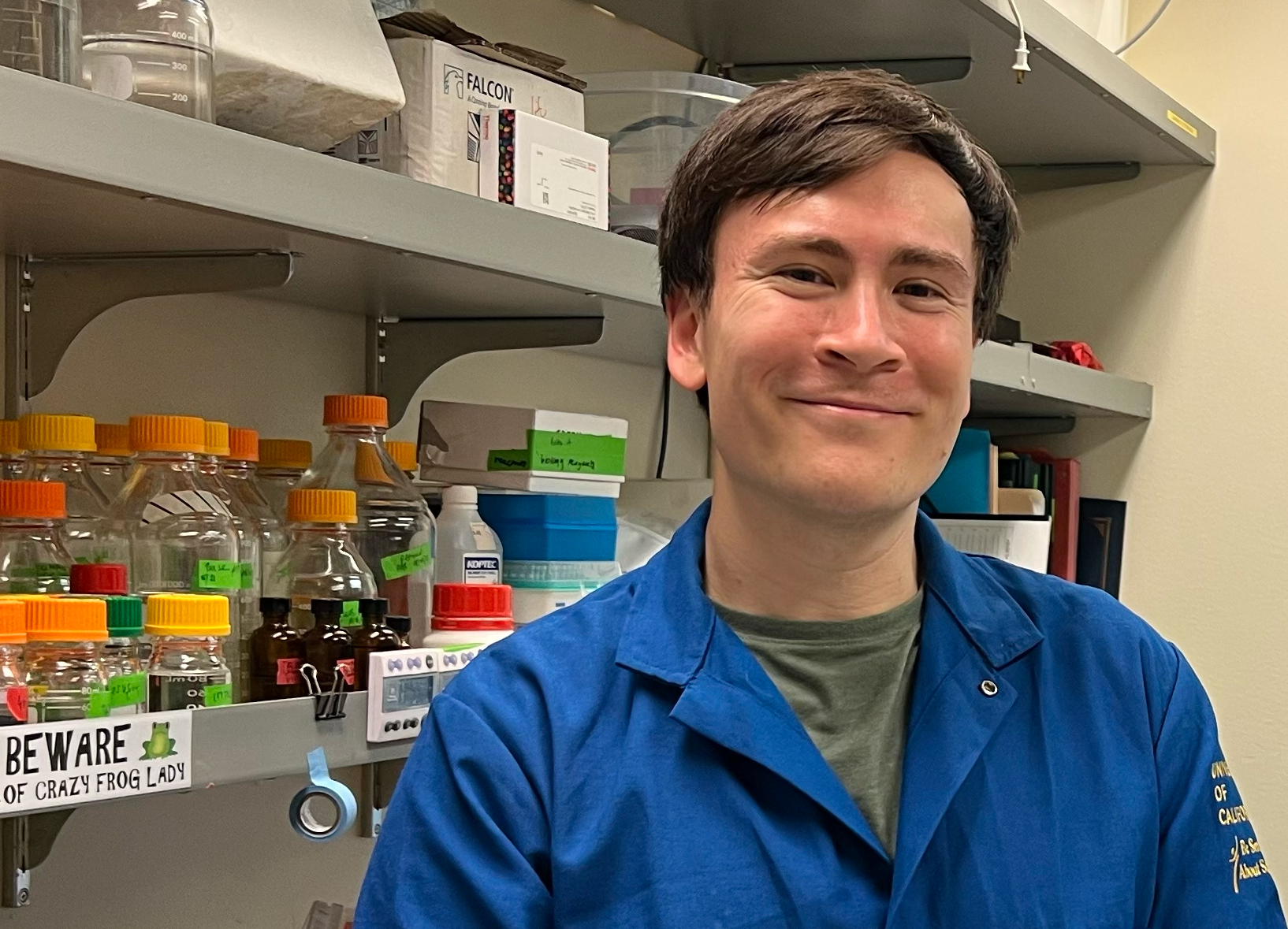Proper cell division, including equal partitioning of DNA into two “daughter” cells, is critical for cell viability. However, many cancers continue to divide despite having atypical numbers of chromosomes and can even contain additional copies of the entire genome (polyploidy). Understanding how large increases in chromosome number affect cell division machinery has been limited by the methods used to generate polyploid cells. Serendipitously, stable polyploidy has arisen in multiple organisms, such as plants, fish, and amphibians. By utilizing the natural polyploidy found in Xenopus clawed frogs (ranging from two copies to twelve copies of the genome), Dr. Cavin-Meza [Merck Fellow] will explore the mechanisms that lead to increased but stable genome size. He will also analyze the proteome across Xenopus species to reveal how proteins have adapted to promote stable polyploidy over time, giving valuable insight into how stable polyploidy could arise in cancers. Dr. Cavin-Meza received his PhD from Northwestern University, Evanston and received his BS from the University of California, San Diego.
Damon Runyon Researchers
Meet Our Scientists
Gabriel Cavin-Meza, PhD
Project title: "Leveraging polyploid Xenopus to probe spindle adaptation to increases in genome size"
Institution: University of California, Berkeley
Named Award: Merck Fellow
Award Program: Fellow
Sponsor(s) / Mentor(s): Rebecca W. Heald, PhD
Cancer Type: All Cancers
Research Area: Cell Biology







